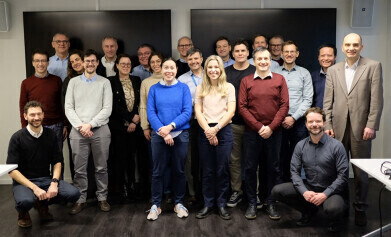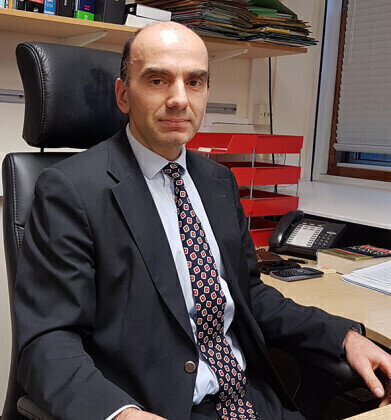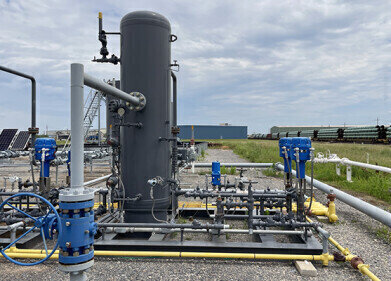-
 MISSION project team
MISSION project team -
 Professor Dragan Jovcic
Professor Dragan Jovcic
Air Clean Up
Addressing the Challenge of the World's Most Potent Greenhouse Gas Emission
Jan 30 2024
The University of Aberdeen's research center has become part of a European network aimed at tackling the technological challenges associated with curbing the release of the world's most potent greenhouse gas. Professor Dragan Jovcic, with his expertise in High Voltage DC (Direct Current) switchgear, is contributing to a significant Horizon Europe project focused on mitigating the emissions of sulphur hexafluoride (SF6), a greenhouse gas with a global warming potential over 25,000 times higher than CO2.
While SF6 has historically found use in various applications, its continued presence in the electricity industry, where it contributes to approximately 80% of global usage, poses environmental concerns. The synthetic and odorless gas plays a crucial role in insulating live electrical components and operating circuit breakers in the electricity grid. Even renewable technologies, such as switchgear in wind turbines, rely on SF6 to prevent overloads.
However, challenges arise from leaks during gas handling or due to defective seals, making it imperative to seek alternatives. As the world transitions towards cleaner energy, the demand for components like switchgear is expected to rise, potentially doubling the volume of SF6 by 2030 if conventional technologies persist.
To address this issue, the Aberdeen High Voltage Direct Current (HVDC) research team is collaborating with 12 partners from nine countries in the EU project MISSION. This Innovation Action, co-funded by the European Union through Horizon Europe and the UKRI Horizon Europe Guarantee fund, aims to develop and demonstrate three SF6-free switchgear components. Among these components is the Medium Voltage DC Circuit Breaker, which will undergo development with crucial research input from the Aberdeen HVDC research center.
Working alongside industry leaders, including switchgear manufacturers, grid operators, DC system developers, and research institutes, the project will explore the use of technology in extreme climates, emphasizing reliability and cost-effectiveness. Professor Jovcic emphasizes the importance of modernizing electrical grid infrastructure to facilitate the transition to clean energy, particularly as electrification becomes central to decarbonization efforts.
Highlighting the significance of the research, Atle Pedersen, the leader of the EU project and research manager at SINTEF Energy, underscores the need to bridge the technology gap for efficient and widespread electrification. The project aims to connect and transfer more renewable energy into the power grid, with a focus on offshore wind sources, ultimately contributing to the reduction of global greenhouse gas emissions.
Events
May 05 2024 Seville, Spain
May 13 2024 Munich, Germany
May 23 2024 Beijing, China
May 23 2024 Beijing, China
Jun 10 2024 Algiers, Algeria













